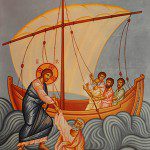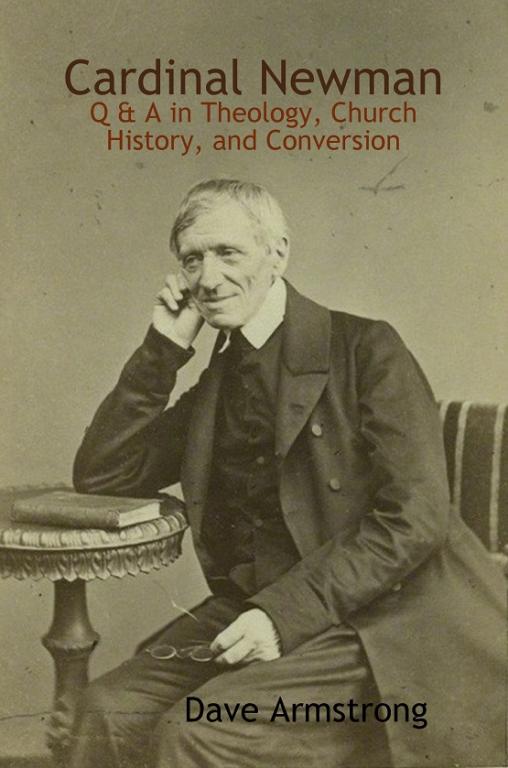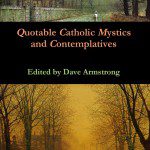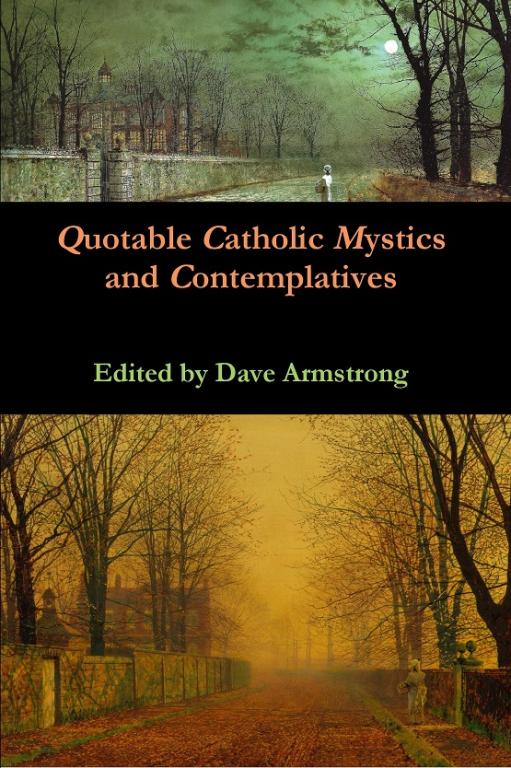[Wikimedia Commons / CC BY 3.0 license]
This occurred in the combox of my post, Clarifications re: Atheist “Reductio” Paper, in August 2015. Ben McGrew‘s words will be in blue. He conducted himself admirably as a “gentleman and a scholar” the entire time.
* * * * *
You might find more people sympathetic to your argument if you were more discriminating in the subject of your paper. “Atheism” is an extremely general term, which includes forms of Buddhism, numerous minor faiths, and the coined ‘Anti-theism’ which appears to be more specifically what you’re addressing.
Atheism doesn’t mean that we’ve ‘ruled out’ a deity, it simply means that evidence for a deity is presently too insufficient to support.
Specific lines of reasoning are arguably absurd, many obviously are, but by pinning those arguments onto ‘atheism’ is like blaming ‘theism’ for the beliefs of a remote sect of violent Muslims without bothering to make the distinction.
Not knowing how something like the universe could exist or begin to exist is not equivalent to presuming an answer and simply being satisfied.
Not knowing why something is, is not ‘faith’. Nor is it a ‘kind’ of faith.
‘Faith’ is the belief in something which is not known or can not be known. Regardless of its veracity.
A more appropriate title might have been, “Views held by many atheists are no less childlike than those they argue against.” Albiet admittedly, you were going for a reaction, not for being politically correct. Unfortunately, that yielded the reaction you’ve been dealing with.
If you say that the evidence is the present universe, which was the result of these mysterious material forces that brought it about, we can say, by the same token, that we believe the universe was created by God, because we can see the results.
In either scenario, unproven and unprovable axioms are accepted from the outset. Direct empirical evidence is not to be had.
The difficulties in the position and lack of absolute knowledge still have to be faced. It’s a question of intellectual humility and the realities of the limitations of human knowledge.
Do you think presuming to know the answer to an unanswerable question is more humble than acknowledging that particular limitation?
To many people, theism is precisely the refusal to realize the limitations of human knowledge, and the consequences that follow.
No; I think that it is humble to recognize that others of a different persuasion are not automatically wicked or stupid because they believe things that we don’t, and that everyone holds to unproven axioms (what I have defined as “faith” in this context) and that no one has a lock on reason (or gullibility).
You matter-of-factly granted the thing that was my main point (everyone has axioms), so my beef isn’t with you. It’s with the condescending, stereotypically “angry atheist” who thinks all Christians are infantile idiots.
You don’t fit into that mold, so the paper hardly even applies to you. I would suspect that you don’t think all Christians are stupid, anti-science, and all the other epithets routinely tossed out.
And that is why I can talk to you, calmly and rationally and constructively in the first place.
Which gets back to the question of intellectual humility and tolerance . . .
What do you think my axioms are?
*The rest has been digested and appreciated.
Just as in my piece: that matter has an inherent capability to create everything in the universe. I regard that as requiring every bit as much faith (if not much more) as belief in an Eternal Intelligent Spirit, God, Who created all that we see.
1) Evolution has absolutely nothing to do with the origin of the universe, thus it makes perfect sense for it to fail as a solution to the wrong question.
2) Again, Evolution pertains to the process by which life changes, so it also was never intended to address abiogenesis.
However, to address the core of your statement, many atheists do hold that a process other than a deity is responsible for or is likely to be the cause of the above events. The specific process is less relevant than the fact that it provides a viable (and equally importantly, demonstrable) alternative to the hypothesis of ‘God’.
Since reasonable alternatives exist, it becomes an issue of probability, and in the absence of statistically significant evidence for either position (ignoring the ongoing debate on that issue), the default position ought to be agnosticism, so that inquiring minds can freely search for the evidence which will eventually determine whether a right answer can be found.
Your “default” position (again) presupposes empiricism-only, and so it is circular reasoning and not totally “inquiring” at all.
Granted, it is entirely possible that the most significant truths only exist in a form that can only be navigated internally, but that is inherently incapable of being communicated to another person through lesser means.
* * * * *
No argument from me, science is the study and observation of nature. Since we can’t observe anything prior to our known universe, ( at least as we understand it), science simply can’t prove much in that regard. The ultimate ‘Why?’ questions are fundamentally philosophical. Science can help to eliminate some of the proposed theories, but can’t provide any definitive answers.
~~~
When the question is staged with a narrow view, sometimes a creator is a more likely answer, for example, “Who created the universe?” presumes an agent, however we can also ask “Could there be a part of our physical reality that is outside of our ability to perceive, like a fourth spatial dimension?”
The introduction of relatively simple concepts like additional dimensions can entirely eliminate the issues that make an intelligent creator seem necessary. A beginning for a three dimensional universe could simply be one of an infinite number of events occurring in a four dimensional one and we’d never be able to tell.
Abiogenisis specifically has a number of postulated origins, but in order to really come to any conclusions, we’d have to define precisely what constitutes life, and eventually consciousness, and that’s too long of a road for this thread.
~~~
I also have an engineering degree and my fiance is pursuing a PhD in Biology. We’re both active in secular and interfaith communities.
~~~
Science isn’t the end all be all. There are logical truths that we must work within, like laws of non-contradiction, and there are scientific bodies of evidence which can be used to eliminate a large portion of those philosophies. For example, half a dozen versions of String Theory have been wiped out thanks to the efforts at the LHC.
~~~
I think we can both agree that order comes from order, not disorder, (Entropy, at the very least, must be preserved)
The religious version of events states that a Being was the first embodiment of order.
The secular version of events states that inanimate “stuff” was the first embodiment of order.
In either scenario, there is an impossibly specific set of traits that would need to be manifested for our very specific universe to result.
Unfortunately, the nature of ‘first’ is that there is no context. At All. So we can’t even propose a probability that one scenario is more likely than the other.
The most basic Theism/atheism division becomes at best a 50/50 guess. It isn’t until people attempt to put the deity into a descriptive box that the odds fall out of favor for the theist.
I agree: philosophy (and religion) must answer ultimate questions. And that was the thinking behind my reductio as well). Much agreement there!
The ones who think that science can explain absolutely everything, are playing a game of kindergarten thinking, in my humble opinion.
I’d guess that 99.999% of all human thinking is ‘band wagon’ thinking. Pattern recognition is essential to our neural systems, and perfect reasoning for all subjects is both outside of our reach and undesirable for a limited being.
At some point you simply have to declare that something has always existed. Also there needs to be an understanding that the term ‘infinite’ teases us like we should be able to grasp it, but can’t. Infinite is an uncomforting concept.
Outside of removes any sense of responsibility we might have for understanding.
That would be begging the question, and would earn the response of “Where did God come from?”
Either scenario proposes something incomprehensible, regardless of how emotionally appealing they may be.
The oft repeated phrase “Outside of Time and Space” has functionally no meaning. You may as well say “Outside of Reason”.
The problem with your scenario is that you presuppose empiricism throughout. On what basis do you presuppose it? Why does everything have to reduce to empirical (observable / testable / replicable) science?
If that is so, then it precludes non-empirical philosophy as well as religion. So I think you have to explain why it is that you approach existence according to empiricism. From whence does that derive?
How do you conclude that it is all the worthwhile knowledge there is, and exclude and dismiss anything outside of it?
I don’t presume that the only knowledge is that which is testable, but I do tend to hold that leaning on untestable knowledge is inherently unreliable. So, while empiricism may be incomplete, it is at least the best fit.
It is impossible to determine whether revelation truly is knowledge or simply the sense that knowledge is had.
If senses are universally unreliable, which is entirely possible, then that precludes the possibility of revelation for the same reason.
It’s not impossible to test revelation. One plain way to do so is to see if prophecies from revelation come true.
There are many prophecies in the OT that have been demonstrated, such as the prediction of the destruction of Babylon (then the greatest city in the world) and the prediction that it would never be built or inhabited again.
That is demonstrable stuff. But it is also off-topic. :-)
Are the demonstrations applied forward or retrospectively?
If we can’t say, for example, the old testament predicts a particular unknown creature to be found in ‘X’ location an then we actively set out to test that prediction, then we are extremely vulnerable to fitting the evidence to the hypothesis and not the other way around.
Evolution, on the other hand, has made these kinds of predictions and fulfilled them. Guided or not, the practical value of Evolution has been demonstrated on a macro scale.
I gave the example of Babylon. The prophecy was before it happened in history, then it did, as we know from historiography: a secular field not biased towards a Jewish prophecy.
That’s just one of many. You have, e.g., the messianic prophecies about Jesus (as many as 300, some assert; though many are pretty vague and not all that compelling, in my opinion).
* * *
My general view with regard to evolution, creation, and the difficulties therein, is not far from Einstein’s (though I would grant a place for [the theistic / Christian] God that he does not:
I’m not an atheist and I don’t think I can call myself a pantheist. We are in the position of a little child entering a huge library filled with books in many different languages. The child knows someone must have written those books. It does not know how. The child dimly suspects a mysterious order in the arrangement of the books but doesn’t know what it is. That, it seems to me, is the attitude of even the most intelligent human being toward God. We see a universe marvelously arranged and obeying certain laws, but only dimly understand these laws. Our limited minds cannot grasp the mysterious force that moves the constellations.
(From an interview, quoted in Glimpses of the Great by G. S. Viereck [Macauley, New York, 1930], cited in Max Jammer, Einstein and Religion: Physics and Theology [Princeton University Press, 1999], p. 48)
Also from Einstein:
Try and penetrate with our limited means the secrets of nature and you will find that, behind all the discernible concatenations, there remains something subtle, intangible and inexplicable. Veneration for this force beyond anything that we can comprehend is my religion. To that extent I am, in point of fact, religious.
(Response to atheist, Alfred Kerr [Winter 1927] who after deriding ideas of God and religion at a dinner party in the home of the publisher Samuel Fischer, had queried him “I hear that you are supposed to be deeply religious” — as quoted in Diaries of a Cosmopolitan: Count Harry Kessler, 1918-1937, by H. G. Kessler, [Littlehampton Book Services Ltd, 1971 edition] )
And:
You find it strange that I consider the comprehensibility of the world (to the extent that we are authorized to speak of such a comprehensibility) as a miracle or an eternal mystery. Well a priori one should expect a chaotic world which cannot be grasped by the mind in anyway. One could (yes one should) expect the world to be subjected to law only to the extent that we order it through our intelligence. Ordering of this kind would be like the alphabetical ordering of the words of a language. By contrast, the kind of order created by Newton’s theory of gravitation, for instance, is wholly different. Even if the axioms of the theory are proposed by man, the success of such a project presupposes a high degree of ordering of the objective world, and this could not be expected a priori. That is the “miracle” which is being constantly re-enforced as our knowledge expands.
There lies the weakness of positivists and professional atheists who are elated because they feel that they have not only successfully rid the world of gods but “bared the miracles.” Oddly enough, we must be satisfied to acknowledge the “miracle” without there being any legitimate way for us to approach it.
(Letter to Maurice Solovine; from Robert N. Goldman, Einstein’s God—Albert Einstein’s Quest as a Scientist and as a Jew to Replace a Forsaken God [Joyce Aronson Inc.; Northvale, New Jersey; 1997], p. 24)
The idea of a personal God is quite alien to me and seems even naive. However, I am also not a “Freethinker” in the usual sense of the word because I find that this is in the main an attitude nourished exclusively by an opposition against naive superstition. My feeling is insofar religious as I am imbued with the consciousness of the insufficiency of the human mind to understand deeply the harmony of the Universe which we try to formulate as “laws of nature.” It is this consciousness and humility I miss in the Freethinker mentality.
Sincerely yours,
Albert Einstein.
(Letter to A. Chapple, Australia, 23 February 1954; Einstein Archive 59-405; also quoted in Otto Nathan and Heinz Norden, Einstein on Peace [Random House Value Publishing; Avenel 1981 edition], p. 510)
See my long paper about Einstein’s “religion”.
And don’t bother saying this is an argument from authority. I’m simply showing how science and a “religious attitude” are not at all incompatible, even in the greatest minds.
It’s not an argument; it’s the reporting of a fact (the great Einstein thought in this way).
Mechanically speaking, the presupposition of a deity simply shifts the unknown back by an additional step, but does not eliminate it. It is a mask for understanding, potentially releasing a believer from a sense of responsibility for the unknown.
If true, that’s swell, but it doesn’t answer the fundamental questions.
My position is only strongly against Gnosticism. When people ‘know’ something, and are unwilling to doubt their knowledge, then they have lost something immeasurably valuable, even if they may go the the grave with a grin, thinking they’ve saved the world.
Atheists are as dogmatic about what they believe as any Christians I know. They think (generalizing, of course) they have all this knowledge that all us ignorant peasant Christians reject and are too stupid to grasp.
If that’s not the Gnostic attitude, I don’t know what is. I think it simply means “closed-minded and triumphalistic” and it is not restricted to religious people.
Gnosticism of any kind is what I oppose.
Good. So do I. But I do believe in supernatural revelation, as all Christians do. That’s not secret. It’s open and verifiable and subject to analysis of various sorts.
I’m curious: have you ever read serious philosophical treatments of the question of God, from Christian philosophers: guys like William Lane Craig or Alvin Plantinga, or Peter Kreeft? Have you read the best that the opposing position has to offer?
Yes, I have (William Lane Craig, Alvin Plantinga, C.S. Lewis, etc.), and I regularly discuss them with a community holding degrees in Theology. That and my fiance and I are both currently with Notre Dame university and attended Mass just a few short days ago. Don’t confuse my disagreement for a lack of exposure.
I know that you are open-minded and able to be talked-to, without all the nonsense, which is quite enough at this point.
Glad to hear that you have read those guys. Peter Kreeft is a superb Catholic philosopher, who has written 50-60 books, uniformly excellent.
If you’d like to expand your circles of private conversation, I can put you in touch with a few extremely agreeable and well read people ranging from “Struggling Christian”, “Ex-Christian Theologian”, to “Overwhelming, yet Underexposed anti-Intelligent Design Powerhouse.”
All in time. I’d be delighted to talk to anyone who is willing to talk, and is of an open-minded, charitable nature. They’re all welcome on this page. Most of that I will do here. I prefer public conversations, so that others can observe. I think it is a great teaching method.
Private discussions are great, too, but as part of my job (public teacher / apologist), I can only devote so much time to that, so that it amounts to a hobby in my spare time (or just hanging around friends, who happen to be atheists, Muslims, Hindus, etc.).
People reading threads like this can learn how atheists truly think (not silly caricatures of them), and how one Christian (me) replies to them. Hopefully, the hostile kind of atheists can see that not all Christians are morons and troglodytes, etc.
So I think a lot of good comes from threads like this.
Even the previous fiasco thread illustrates how “angry atheists” deal with Christians. It’s very instructive.
Whenever I try to present an argument against theism, (or at least the belief in theism), it is almost always against the fundamental concept of a deity, rather than a single religion. That saves a lot of time and is applicable to every conversation.
The issues that were originally discussed in your paper are perhaps the most popular positions, but not the most fundamental ones to a lack of belief.
Addressing the most prominent branch of an infinite tree might be most impacting, but perhaps not as conclusive as going for the trunk.
If you’d like to reach the core of ‘atheism’, that might prove more productive, and I’d be happy to work with you to that end in an orderly way.
Sounds good; again, in time. If you hang out here, I’m sure we can have many good discussions. I feel that I have made a few new friendly acquaintances now who are atheists or agnostics, which is great.
My reductio was not designed to “disprove ” atheism, but to respond to the charge that we Christians are uniquely gullible and susceptible to belief in fairy-tales that have no relation to rational justification.
That is what it was responding to; and as I have said, it sought to prove that atheists have faith (unproven axioms) just alike anyone else does. You’ve already conceded that (I think it was you!).
The “core of atheism” sounds fascinating, since other atheists insist that it’s more like the core of an onion: nothing except a negation: not theism.
If you have a more positive, pro-active conception, that is of extreme interest to me. I’ve sought that from atheists for many years, and as of yet I’m not clear in my mind what it is, other than not theism.



























